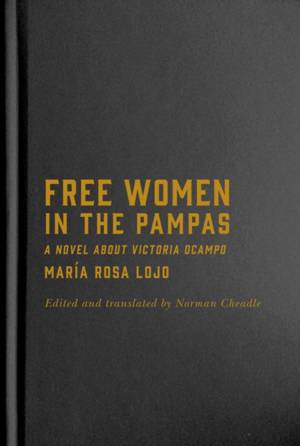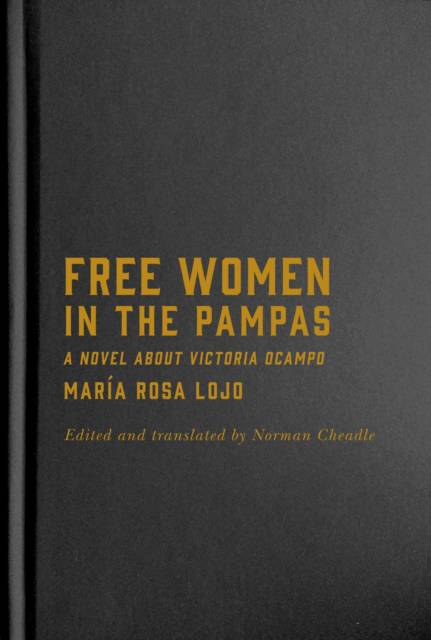
Bedankt voor het vertrouwen het afgelopen jaar! Om jou te bedanken bieden we GRATIS verzending (in België) aan op alles gedurende de hele maand januari.
- Afhalen na 1 uur in een winkel met voorraad
- In januari gratis thuislevering in België
- Ruim aanbod met 7 miljoen producten
Bedankt voor het vertrouwen het afgelopen jaar! Om jou te bedanken bieden we GRATIS verzending (in België) aan op alles gedurende de hele maand januari.
- Afhalen na 1 uur in een winkel met voorraad
- In januari gratis thuislevering in België
- Ruim aanbod met 7 miljoen producten
Zoeken
€ 179,45
+ 358 punten
Omschrijving
A feminist pioneer, writer, and patron of the arts and literature in Buenos Aires, Victoria Ocampo (1890-1979) was a larger-than-life personality of legendary vitality. A key protagonist in Argentina's rise to world-class status in the arts and sciences, Ocampo leveraged her wealth and social status to found Sur (1931-92), the internationally influential journal of literature, culture, and ideas.Ocampo personally invited many intellectual and artistic celebrities to visit Buenos Aires. Most were men. Some, endowed with egos as outsized as their reputations, tripped and fell into sentimental imbroglios with the strong-willed and beautiful Ocampo. In Free Women in the Pampas the ups and downs of her passionate friendships, debates, and misunderstandings with poet Rabindranath Tagore, philosopher José Ortega y Gasset, and the writers Pierre Drieu de la Rochelle, Hermann von Keyserling, and Waldo Frank are witnessed by the fictional Carmen Brey, a Galician-Spanish immigrant whose story is skilfully interwoven with that of Ocampo. Carmen's sympathetic but incisive gaze puts her friend Victoria into perspective against a larger vision of Argentina. Carmen's adventures lead her to social-justice writer María Rosa Oliver, the wilder side of the 1920s literary avant-garde (and the now-canonical authors Roberto Arlt, Jorge Luis Borges, and Leopoldo Marechal), the Mapuche people of the pampa, and a ten-year-old Evita Ibarguren, later famous as Eva Perón.Against this broad, inclusive backdrop, the novel vividly depicts Victoria Ocampo's struggle with the strictures of class and gender to find her own voice and vocation as a public intellectual.
Specificaties
Betrokkenen
- Auteur(s):
- Vertaler(s):
- Uitgeverij:
Inhoud
- Aantal bladzijden:
- 280
- Taal:
- Engels
Eigenschappen
- Productcode (EAN):
- 9780228008606
- Verschijningsdatum:
- 15/11/2021
- Uitvoering:
- Hardcover
- Formaat:
- Genaaid
- Afmetingen:
- 155 mm x 231 mm
- Gewicht:
- 521 g

Alleen bij Standaard Boekhandel
+ 358 punten op je klantenkaart van Standaard Boekhandel
Beoordelingen
We publiceren alleen reviews die voldoen aan de voorwaarden voor reviews. Bekijk onze voorwaarden voor reviews.









